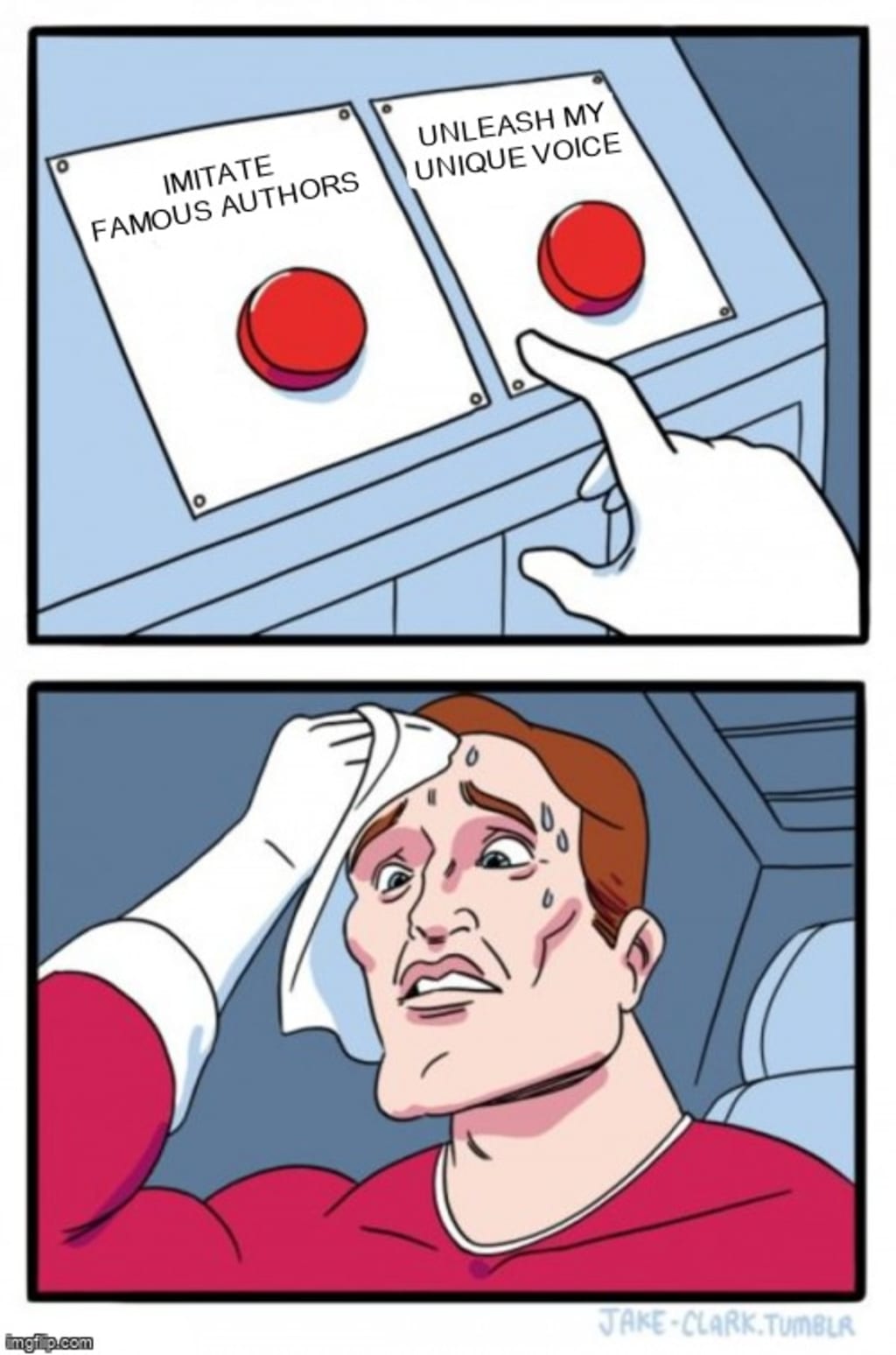
Hello, fellow wordsmiths, literary enthusiasts, and creative souls. I trust you're navigating the world of letters with curiosity and courage. As we delve into the realm of writing, it's important to acknowledge the role of Artificial Intelligence (AI). While AI has proven to be a valuable tool in the editing process, it lacks the creative flair and emotional depth that is the essence of human writing. AI writing, in its current form, is a chorus of cloned voices, devoid of the spark of creativity and the raw emotion that defines our human existence.
Your literary voice, dear reader, is as unique as your fingerprint. It's a reflection of your experiences, your worldview, and your creative spirit. If you're on a quest to discover your voice organically, I hope this guide serves as a beacon on your journey, illuminating the path and providing practical tips to help you along the way.
Firstly, let's dispel the notion of becoming the next Shakespeare or Tolkien. These literary giants may inspire us, but it's crucial to carve your own path in the literary world. Your writing style should be a reflection of you, not a carbon copy of someone else's work. So, let go of the idea that you'll be the next literary sensation because you won't. You will be you, and that's more than enough.
Reading is the twin soul of writing. An eclectic reading list that spans genres, themes, and forms is your best ally. Consider it market research, a wellspring of inspiration. By reading widely, you expose yourself to a variety of writing styles, narrative structures, and literary devices. This exposure not only broadens your understanding of the literary world but also helps you identify the elements that resonate with your unique voice.
Writing, like any art form, has its rules. But remember, these rules are more like guidelines. They provide a framework within which you can explore and experiment. As you find your voice, you need to understand your preferred style, your voice, and your target readership. The secret to captivating your readers and keeping them hooked? You guessed it - reading.
Next, familiarize yourself with the four main writing forms: Fiction, Non-Fiction, Poetry, and Script. Each form has its styles and genres, offering a smorgasbord of choices for your creative exploration. Whether it's the imaginative world of fiction, the factual realm of non-fiction, the rhythmic beauty of poetry, or the dramatic landscape of scriptwriting, there's a form that will resonate with your unique voice.
Now, let's get those creative juices flowing. I recommend a freewriting session, a stream of consciousness exercise where you write non-stop for a set time. This practice allows your subconscious to take over, bypassing the critical mind and tapping into your creative wellspring. Then, read your work aloud. You'll start to discern what resonates with your voice and what doesn't. This self-reflection is a crucial step in discovering your unique voice.
Here's a writing prompt for you: Craft a short story or poem using these nine words - Problem, Dull, Falsify, Window, Attraction, Portrait, Graduate, Waterfall, Hammer. This exercise challenges you to weave disparate elements into a coherent narrative or poem, pushing your creative boundaries and helping you find your voice. Read your work aloud, edit, and write again. Can you see your writer's voice emerging?
If not, don't despair. Discovering your voice is a journey, not a destination. It takes time, patience, and practice. Try writing a dialogue piece. It's a conversation between two characters, a great way to discover your voice. Remember, every writerno matter how successful, has faced moments of self-doubt and comparison. It's natural to look at the work of others and feel that you're not as good. But remember, comparison is the thief of joy. The only way to become good at something is to practice. So, keep writing, my friends!
Writing is a deeply personal and introspective process. It's about expressing your thoughts, emotions, and experiences in a way that resonates with others. Your voice is your unique contribution to the literary world. It's what sets you apart from other writers. So, embrace your uniqueness, nurture your voice, and let it shine in your writing.
Lastly, remember that writing is a journey, not a destination. It's a process of continuous learning, growth, and self-discovery. So, be patient with yourself, keep an open mind, and enjoy the journey. Your unique voice is waiting to be discovered, and the world is waiting to hear it.
About the Creator
John Wu
Tech lover, trying use AI do amazing things






Comments
There are no comments for this story
Be the first to respond and start the conversation.